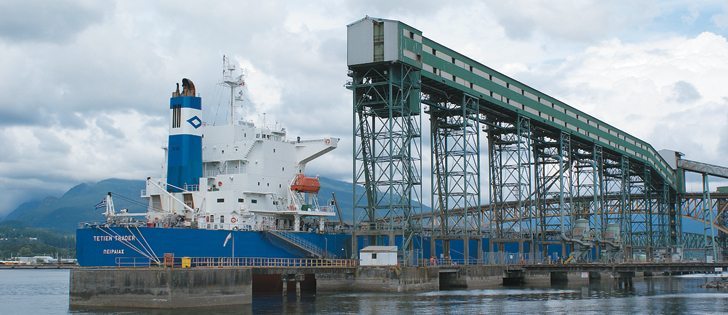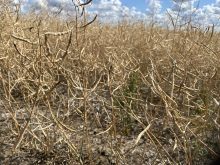Canada can find its diversified economic future in Asia, but will it take the risks it needs to grow?
While Canada focuses its effort and energy on the Trans-Pacific Partnership negotiations, international trade experts are turning their attention to widening the TPP list. Canadian agricultural opportunities in Taiwan demonstrate why that needs to happen.
Our October 2014 report, Finding the Hidden Dragon: Why Taiwan Matters to Canada’s Economic Future, concludes that Taiwan is an essential future trading partner for Canada and should join the TPP table. The growth potential shows itself prominently in the agricultural and lumber sectors.
Read Also

Producers face the reality of shifting grain price expectations
Significant price shifts have occurred in various grains as compared to what was expected at the beginning of the calendar year. Crop insurance prices can be used as a base for the changes.
Taiwan relies on imports for much of its food. In 2012, it imported $14 billion in agricultural products and exported $40 billion.
Taiwan is a strong producer of horticultural products, particularly tropical fruit and flowers, but Taiwan’s small land mass makes it difficult to produce grain for animal feed and to meet the growing demand for western-style breads and pastas.
Grain and oilseeds are strong growth markets for Canadian producers. There is also growing demand in the specialty, processed, and healthy choice markets.
Canada exported more than $210 million in agri-food products to Taiwan in 2013. Leading Canadian agricultural exports are typically meat products, animal hides, cereals and oilseeds. Taiwan is an excellent potential market for Canadian agricultural products, particularly meat products if certain food safety issues can be worked out.
Canadian agricultural companies hoping to export their products to Taiwan will want to pay particular attention to branding. As Agriculture Canada notes: “Although Canada has a positive reputation regarding quality products, the country is not as familiar in Taiwan. Through positioning and labelling of products, branding can help exporters build a Canadian image.”
Should Taiwan join the TPP, a closer trade relationship will allow Canadian producers to take advantage of the opportunity to establish a reputation as a high-quality producer of agricultural products.
Canada and Taiwan reached an agreement last February to restore access to Taiwan for Canadian bone-in beef from cattle younger than 30 months of age. Exports of this type of beef had been disrupted by the BSE crisis of 2003.
Annual exports are expected to exceed $20 million. Taiwan was Canada’s fifth largest market for beef before the BSE ban more than a decade ago.
Domestic producers supply 80 percent of Taiwan’s demand for poultry products, but this sector represents an important opportunity for Canadian poultry producers.
Disruptions in pork imports have led to increased demand for imported poultry products. The United States is the largest exporter permitted to export to Taiwan, but products from Canada threaten this market share because Canadian chicken products are air-chilled, resulting in less water weight.
Seafood, another potential market,plays an important role in the Taiwan diet, and the average consumer eats an estimated 35 kilograms of fish and seafood products annually. Taiwan consumers are sophisticated and prefer fresh fish and seafood, followed by high quality frozen products.
There are also opportunities in the softwood lumber sector. Taiwan has significant restrictions on domestic logging, which means nearly all of its wood market is served by imports. Canada is Taiwan’s largest supplier of softwood lumber, followed by the U.S.
Softwood lumber demand is increasing because of high hardwood prices in Southeast Asia and new legislation in Taiwan to encourage the use of more sustainable building materials. Taiwan’s wood product uses include flooring, decks, fences, marinas, sidings, patio and mountain trails.
Sector by sector, Canadian companies see the potential in trade with Taiwan, and the growth potential is tangible. Freer access to Taiwan’s markets would create investment opportunities, increase demand for Canadian goods and services and facilitate partnerships for Canadian innovators looking to commercialize their products. Taiwan’s accession to the TPP would benefit Canada, Taiwan and all TPP partners.
Laura Dawson is president of Dawson Strategic and an expert in international trade and cross-border issues






![Protesters crowd a street carrying signs that read, "Global warming real. In other news, water is wet," and "Stop denying the [blue painted pic of the Earth] is dying."](https://static.producer.com/wp-content/uploads/2025/07/29145152/158171_web1_2019-10-18T222818Z_1221762151_RC14C26A65A0_RTRMADP_3_CLIMATE-CHANGE-THUNBERG-1200-220x165.jpg)










